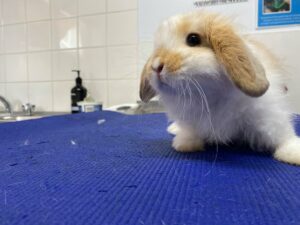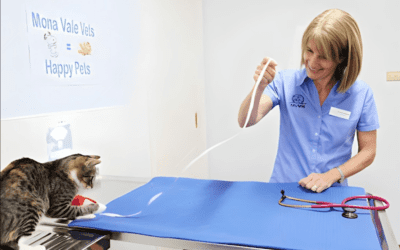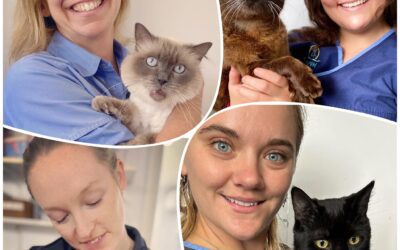Up until August 2022 the only vaccination available in Australia covered against 1 strain of calicivirus (RHDV1) ; however, it only had weak cross protection against the 2nd strain (RHDV2). This vaccination also required boosters every 6 months.


With the recent introduction of a new and improved vaccine (Filavac®) in Australia, we can now protect rabbits from both the RHDV1 strain and the RHDV2 strain of calicivirus. In addition, this vaccine will also provide protection for a 12 month period.
Available for any rabbit over 10 weeks of age, this vaccine is a game changer in terms of protecting your bunnies better and will provide the best protection we have ever had in Australia.
What is Calicivirus (Rabbit Haemorrhagic Disease Virus (RHDV)
Several forms of calicivirus are present in Australia, with the two main types commonly referred to being RHDV-1 and RHDV-2. Both types generally lead to death in most unvaccinated rabbits. RHDV-1 infection generally causes rapid deterioration leading to death. RHDV-2 infection can also lead to sudden death however some rabbits can also suffer from a less acute form of the disease where they show non-specific clinical signs such as lethargy, gastrointestinal (gut) stasis and inappetence.
Can You Test for Calicivirus In Rabbits?
There are no commercially available rapid tests available to confirm calicivirus infection however a likely diagnosis can generally be made from a combination of biochemistry and haematology blood testing as well as the history and presenting clinical signs.


Is Calicivirus Contagious?
Calicivirus is highly contagious. It is generally shed in the excretions from an infected rabbit (faeces, urine, ocular, and nasal secretions). It can then be spread to other rabbits by direct contact, or through contaminated objects such as clothing, food, husbandry equipment, and insects.
Can You Vaccinate Against Calicivirus?
Up until August 2022 the only vaccination available in Australia covered against RHDV1; however, it only had weak cross protection against RHDV2.
With the recent introduction of a new and improved vaccine (Filavac®) in Australia, we can now protect rabbits from both the RHDV1 strain and the RHDV2 strain of calicivirus.
At What Age Can You Vaccinate Rabbits for Calicivirus?
The vaccination can be given to rabbits over 10 weeks of age, with an annual booster required to keep the protection up to date.
Through out your appointment with your rabbit, your pet will be receiving a comprehensive health check with one of our very experienced veterinarians. Remember, a yearly health check for your rabbit is comparable with us having a check up with a doctor every 7 years. Rabbits have relatively shorter lifespans, meaning different age related health and behaviour signs can change from year to year.
Your rabbits yearly vaccination and health check can include:
- Administering vaccinations.
- Full physical examination. This will include include discussion of any skin lumps, inflamed skin, age related changes and physical problems.
- Their weight will be recorded plus dental health noted and discussed.
- Discuss types and amounts of food being fed.
- Discuss housing and maintenance and general husbandry.
- Advise and adjust any medication prescribed for your rabbit.
- Discuss grooming aspects
If you would like to make an appointment or you have questions regarding your rabbit’s vaccination status, please give us a call or make an appointment online.






